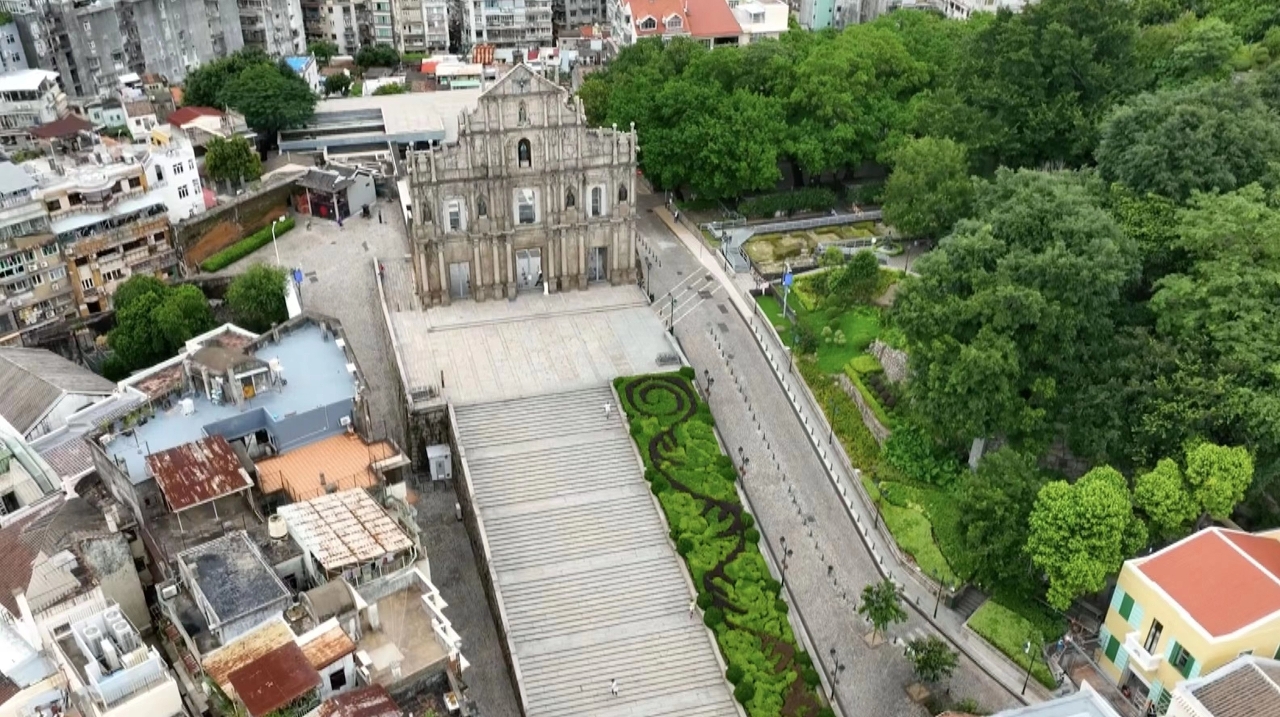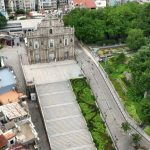 UM’s COVID-19 research team provides suggestions for optimising the anti-epidemic strategies of Macao
UM’s COVID-19 research team provides suggestions for optimising the anti-epidemic strategies of Macao
Since the recent wave of COVID-19 infections in Macao that started on 18 June 2022, the local community has been facing an increasing number of challenges brought by the outbreak. Based on the analysis of the outbreak’s recent development, the COVID-19 research team of the University of Macau (UM) has made a number of suggestions hoping to help inform the decision-making about the next steps in the combat of the virus.
The research team points out that, due to the new variant dominating this new wave, the spread of the infection is significantly faster than before. Voices have raised from different walks of life about lockdown and how it should be implemented to contain infection quickly, ranging from ‘no lockdown’ to ‘a full-scale lockdown’. In any case, the team stresses that the decision-making of public health policies needs to be based on well-informed cost and benefit analysis.
To indicate the costs, a reduction in Gross Domestic Product (GDP) is often used to reflect the loss associated with lockdown measures. However, there are many other negative or secondary effects, both tangible and intangible, that should be taken into account. For example, strict lockdown measures would have a profound impact on maintaining social ties and the accessibility of education and medical services, and may increase the risks of family conflicts, depression, anxiety or even suicide along with other serious mental disorders. Experiences around the world show that an absolute lockdown is only fully effective when the infection rate is high (currently around 0.2% per capita in Macao) and/or when the essential enabling conditions are in place. In fact, countries, regions, and cities despite strict lockdown measures (such as Shanghai recently) are not completely immune to the emergence of new outbreaks. In addition, studies have also shown that awareness and practices of personalprotective behavior remain the key measures to significantly reduce the spread of the virus, and thus reducing the need for stringent lockdown measures and avoiding the impact of the associated secondary problems.
The research team anticipates that, if strict lockdown measures are implemented in Macao, there will be significant challenges and a range of new difficulties. Firstly, Macao lacks a precise geographical demarcation, making it very difficult to establish a detailed supply system of household goods. Secondly, Macao does not have strong community-based organisations similar to the neighbourhood committees or village committees in mainland China which play a crucial role at the operation level. To ensure the supply of goods reaching each and every household during strict lockdown, the huge demand for the manpower is essential but would be very difficult to meet. In addition, although a district-specific setting has always been in place for the triage of healthcare services provided by the public sector, such setting does not match with the geographical zoning required for lockdown control. Considering that Macao is an aging society with a significant number of patients requiring long-term medical treatment, major challenges in ensuring stable accessibility to basic medical treatment, including outpatient services and medication supply under a strict lockdown would be inevitable. Furthermore, the execution of lockdown measures requires an effective administrative body to oversee and support the day-to-day operation, which is also lacking under the current circumstances.
Taking into account the pandemic development of different stages in China and abroad and the associated societal impact, as well as the local situation whereby the reported cases of infection remains relatively small, the research team proposes that ‘relatively static’ lockdown measures aiming to minimise non-essential activities as much as possible would be more appropriate and feasible at this stage. For this, the team has made the following recommendations: 1. Continuous mass COVID-19 test would be necessary to screen for unknown cases of infection hidden within the community; 2. Residents should always be aware of personal protection, wear masks, wash hands regularly, and keep a safe social distance; 3. Residents should avoid going out as much as possible. The research team has also some recommendations specific to the following population subgroups: 1. Symptomatic patients: In light of a possible surge of symptomatic patients (especially the critically ill) with increased number of infection cases, it is important to create plans for emergency supplies, staff, and facilities (e.g. ICU); 2. Patients who have tested positive for COVID-19 but are asymptomatic: Isolate and treat these patients in a mobile cabin hospital as long as the number of beds in the hospital can accommodate (5000-8000 people). In the event of an escalation of the community outbreak in which the number of patients far exceeds the capacity of the mobile hospital, home isolation should be considered for these patients for at least seven days, with supervision measures being carried out by building security staff. 3. People who have tested negative for COVID-19: Maintain normal social functioning on the basis of good personal hygiene precautions.
The research team believes that, in the unlikely event that a full-scale lockdown is necessary, Macao can reach out to mainland China for further support in terms of expertise in public health, epidemiology, and big data analysis to support decision-making about the anti-pandemic strategies applicable to the local context. The team also suggests that the authorities should improve the procedure of the mass COVID-19 testing exercise, and to closely monitor the impact of this new infection wave on the mental health of the people in Macao especially to avoid shock mobility, which is not conducive to disease prevention and control, nor to the economy and livelihood of the people of Macao.


